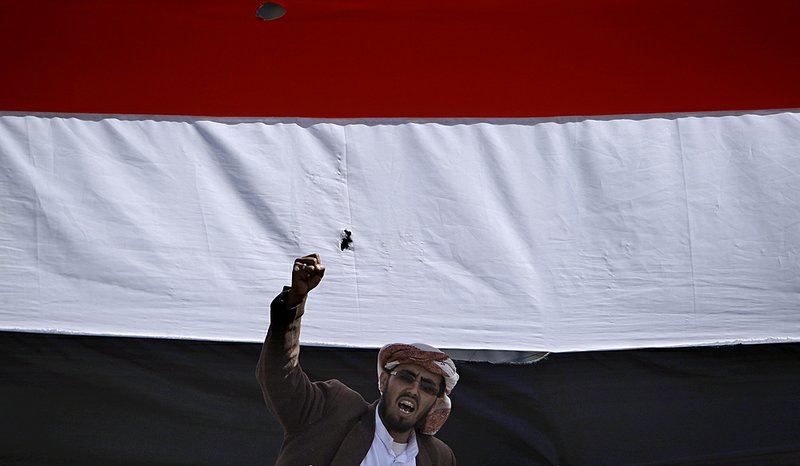CAIRO, Egypt — A constitutional-overhaul panel Saturday recommended opening Egypt’s presidential elections to competition and imposing a two-term limit on future presidents in a dramatic shift from a system that allowed the ousted Hosni Mubarak to rule for three decades.
The changes are among 10 proposed constitutional amendments that are to be put to a popular referendum later this year. The proposals appeared to address many of the demands of the movement that help lead the 18-day popular uprising that forced Mubarak to step down Feb. 11.
But some Egyptians worry that the proposed changes don’t go far enough to ensure a transition to democratic rule and could allow the entrenched old guard to maintain its grip on power.
The most important of the eight-member panel’s proposals would greatly loosen restrictions on who could run for president, opening the field to independents and candidates from small opposition parties. The previous system gave Mubarak’s ruling National Democratic Party a stranglehold on who could run.
“We were denied the right to have candidates before. Now they opened the door for whoever wants to run,” said Judge Ahmed Mekky. “This is a step forward.”
The panel also recommended full judicial supervision of the electoral process, which would address regular criticism that the government routinely rigged past elections.
On Egypt’s widely criticized emergency laws, which have been in place for 30 years and grant police sweeping powers of arrest, the panel proposed limiting their use to a six-month period with the approval of an elected parliament. Extending their use beyond that should be put to a public referendum, it said.
The recommendations did not directly address the law governing the formation of political parties - a process that previously was controlled by Mubarak’s ruling party. Nor did they meet the demand of some protesters that the current constitution be scrapped and a new one created from scratch.
http://www.arkansas…">Protests that changed Egypt
But the panel’s chief, Tareq el-Bishri, said the proposals “constitute a temporary constitution, after which a new constitution for the country can be drafted.”
Islam Lotfi, a leading youth activist and a member of Egypt’s most-organized political movement, the Muslim Brotherhood, said the promise to rewrite the constitution responds to a major demand of the protesters.
But he called for the military to change the laws to scrap restrictions on forming political parties.
On Friday, tens of thousands rallied in Cairo’s Tahrir Square to keep up the pressure on the military, pushing for the dismissal of the head of the caretaker government of Prime Minister Ahmed Shafiq, who was appointed by Mubarak.
On Saturday, hundreds returned to the square. They were mainly protesting the beating of protesters the night before at the hands of the military police.
In a statement, the ruling military council promised such confrontations would not happen again.
YEMEN REBELLION GROWS
Hundreds of thousands called for the ouster of Yemen’s president Saturday in the largest anti-government rallies yet. Additionally, two powerful chiefs from the president’s own tribe abandoned him.
On Friday, troops opened fire on demonstrators in the port city of Aden, killing at least four and wounding 43, according to security and medical officials. London based Amnesty International said it has received reports that at least 11 protesters were killed Friday and that security forces prevented residents from taking some of the wounded to hospitals.
Large crowds were reported Saturday in Yemen’s largest cities, including about 80,000 in the capital, Sana, about 150,000 in the city of Taiz and 30,000 in Aden, according to security officials. Large rallies were also heldin six other areas, including in Emran, a tribal stronghold north of the capital.
Tens of thousands of members from both the Hashid tribe and Baqil, the second largest tribal federation in Yemen, marched in Emran to denounce the president and demand his ouster.
In a speech to protesters, Sheikh Hussein bin Abdullah al-Ahmar, a key Hashid leader and a longtime ally to President Ali Abdullah Saleh, said he is resigning from the leadership of the ruling party.
In a separate statement Saturday, Mohammad Abdel Illah al-Qadi, a key leader of the Sanhan, a Hashid affiliate and a longtime bulwark of Saleh’s regime, said he was resigning from the ruling party as well.
BAHRAIN CABINET SHAKE-UP
Bahrain’s King Hamad bin Isa Al Khalifa ousted four Cabinet members Saturday as a prominent opposition leader returned from exile. Thousands of demonstrators pressed their demands by marching on government buildings in the capital.
Two members of the royal family were among the replaced Cabinet members, a possible nod to protesters’ complaints that the ruling house of Al Khalifa holds too much control over state levers of power.
Meanwhile, Hassan Mushaima, a senior Shiite figure, returned to the tiny Persian Gulf nation from self-imposed exile in London.
Mushaima, who had been among a group of Shiite activists previously accused of plotting to overthrow Bahrain’s rulers, called on the government to be more responsive to protesters’ demands for far-reaching political changes.
TUNISIA UNREST REIGNITES
Four people have died in new unrest in the Tunisian capital between stone-throwing protesters and police on the sidelines of demonstrations against the interim government, officials said Saturday.
The Interior Ministry, in a statement, blamed “provocateurs” for fomenting violence in otherwise peaceful rallies and for purportedly using young people as human shields in renewed demonstrations.
The ministry said three people died Saturday, without elaborating. State TV showed a funeral of a 19-year-old man who was killed Friday after being shot through the neck during protests on a central avenue.
Demonstrators fear the interim government has hijacked the revolution that drove Tunisia’s longtime autocrat from power Jan. 14, sending shock waves through the Arab world.
Information for this article was contributed by Amhed al-Haj, Adam Schreck and Bouazza Ben Bouazza of The Associated Press.
Front Section, Pages 13 on 02/27/2011

